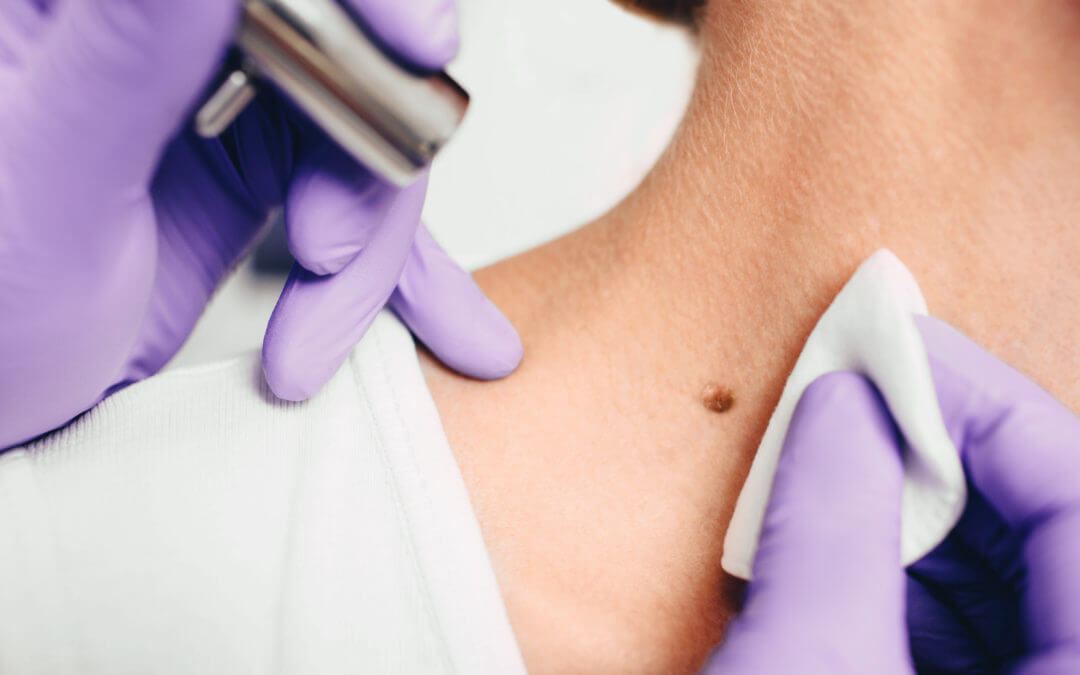Dear readers,
In this article you will learn important information about white skin cancer.
Non-melanoma skin cancer refers to a group of skin cancers that occur primarily due to exposure to UV rays. These include basal cell carcinoma (basalioma) and squamous cell carcinoma (spinalioma). These cancers are usually less aggressive than malignant melanoma, but can still have serious consequences if not detected and treated early.
Basal cell carcinomas account for the majority of non-melanoma skin cancers. They arise in the basal cells of the skin and tend to grow slowly. Squamous cell carcinomas develop from the superficial layers of the skin and can spread more quickly than basal cell carcinomas.
Risk factors for non-melanoma skin cancer include excessive sun exposure, especially in people with fair skin, and frequent sunburns in childhood or adolescence. Regular skin examinations are important to detect and treat suspicious skin changes early.
The treatment of non-melanoma skin cancer, especially basal cell carcinoma and squamous cell carcinoma, depends on several factors, including the type and size of the tumor, its location on the skin, and the patient's health. In general, there are several options for treating non-melanoma skin cancer:
- Surgical removal: This is often the first choice for small tumors. The doctor removes the cancer and a small border of healthy skin to ensure that all cancer cells have been removed.
- Mohs surgery: This is a special technique in which the tumor is removed layer by layer and immediately examined to ensure that all cancer cells have been removed. Mohs surgery is often used for tumors on the face or other sensitive areas.
- Cryotherapy: The tumor is destroyed by freezing it with liquid nitrogen. This is typically used for smaller basal cell carcinomas or spinocellular carcinomas.
- Electrosurgery: This procedure uses electrical energy to remove cancer cells.
- Radiotherapy: This can be used when surgery is not possible or when the cancer has spread.
- Drug therapies: In some cases, topical medications such as imiquimod or fluorouracil may be used to destroy skin cancer cells.
The choice of treatment depends on the individual situation and is usually determined by a dermatologist or oncologist. It is important that patients regular skin examinations and report any suspicious skin changes to your doctor in order to detect and treat skin cancer at an early stage.
If you have any further questions about white skin cancer, please contact me directly or make an appointment either by phone or online via Jameda https://dr-u-falk.de/online-termine/.



Recent Comments